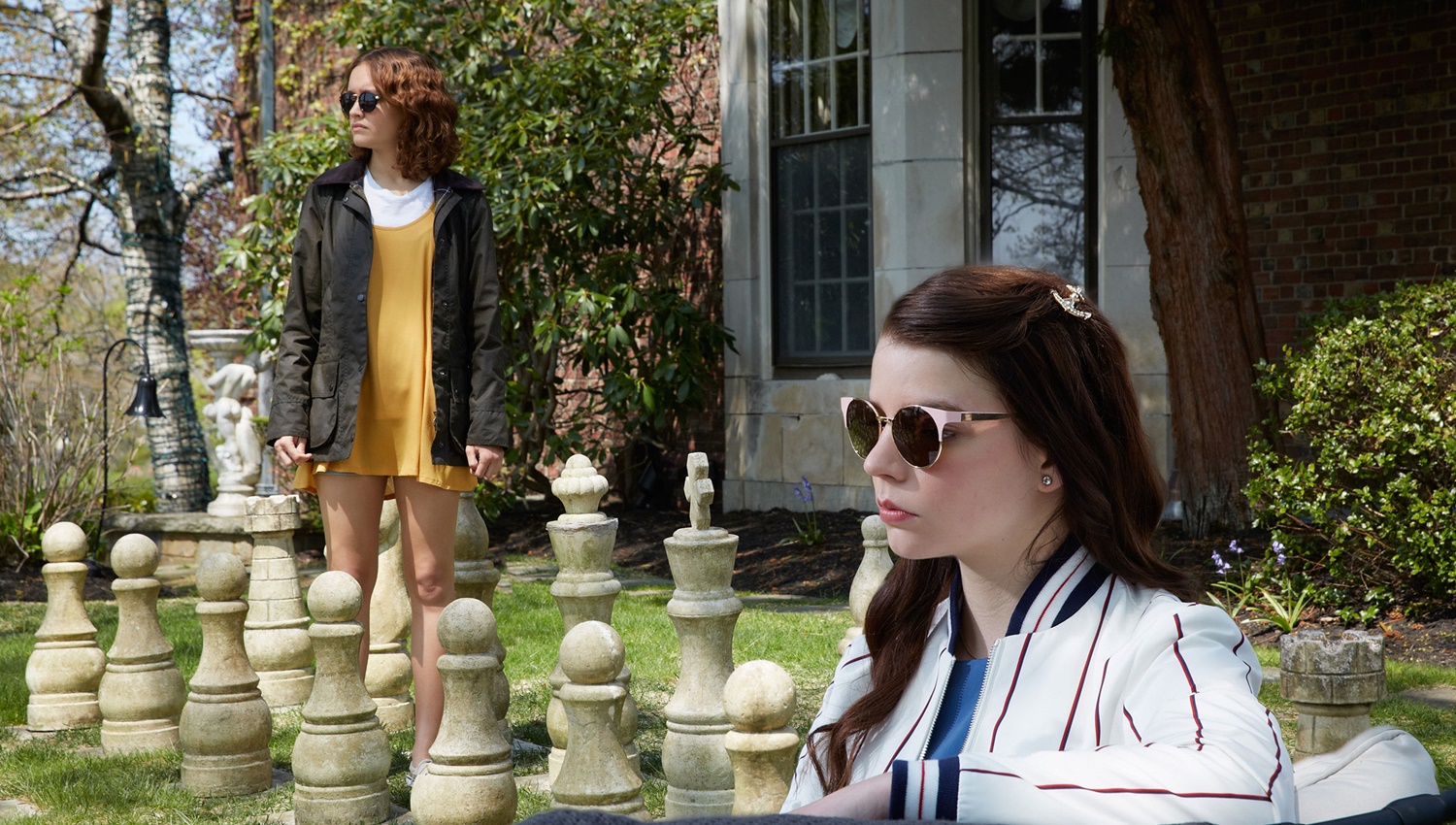
Thoroughbreds
Dustin Chase
Cory Finley’s directorial debut is a sleeper, without the word hit being attached to it. A sleeper in the sense, I couldn’t sustain my interested and barely kept my eyes open. That’s surprising for a film that deals with two disturbed teenage girls plotting to kill a stepdad. Finley’s original screenplay looks at the story through a privileged telescope, inviting the audience judgement. Thoroughbreds is an indie film without a protagonist, only circumstances. It’s also unfortunately the final screen appearance of Anton Yelchin. The most demanding requirement for the audience is patience during the extremely slow pacing. Granted there are moments so awkward they become interesting, but those are few and far in between.
Following the controversial slaughter of her sick horse, Amanda (Cooke) reunites with her former high school friend Lily (Taylor-Joy) for some private tutoring. Both girls come from privileged New England families, but have rejected societal expectations, not turning out the nice young women their parents expected. Amanda and Lily become closer friends than before, both start to influence the other in negative ways. Amanda, sensing Lily’s uncomfortable nature around her stepfather Mark (Sparks), suggests just killing him. The girls begin working out a plot and scenario, so they won’t get caught.
Script is so sparse with ideas and dialogue that the running time is stretched through observational narrative.
The psychological behavior that’s studied between the girls is probably the most interesting element of Thoroughbreds. However, that’s completely useless in a film that can’t maintain the audience attention span. Aside from Yelchin, neither Taylor-Joy (The Witch, Split) or Cooke (Me and Earl and the Dying Girl) are big enough marquee names to bring in a wide audience. Both young actresses evoke a sense a hostility and unappreciated social status. Finley’s underlying commentary on affluenza and white privilege is thwarted by the murder plot and focal point of violence.
My biggest criticism of this film is more technical. Finley’s script is so sparse with ideas and dialogue that the running time is stretched through observational narrative. Thoroughbreds has long takes of exposition where our main characters might just be starring at each other, as if communicating telepathically. The quiet nature of the film is often being used to lean toward the thriller element, but Thoroughbreds isn’t very interested in portraying violence on screen. Both characters would do well in a screenplay that gave them more to do than just thinking.
Final Thought
Thoroughbreds suffers from critical pacing issues.
